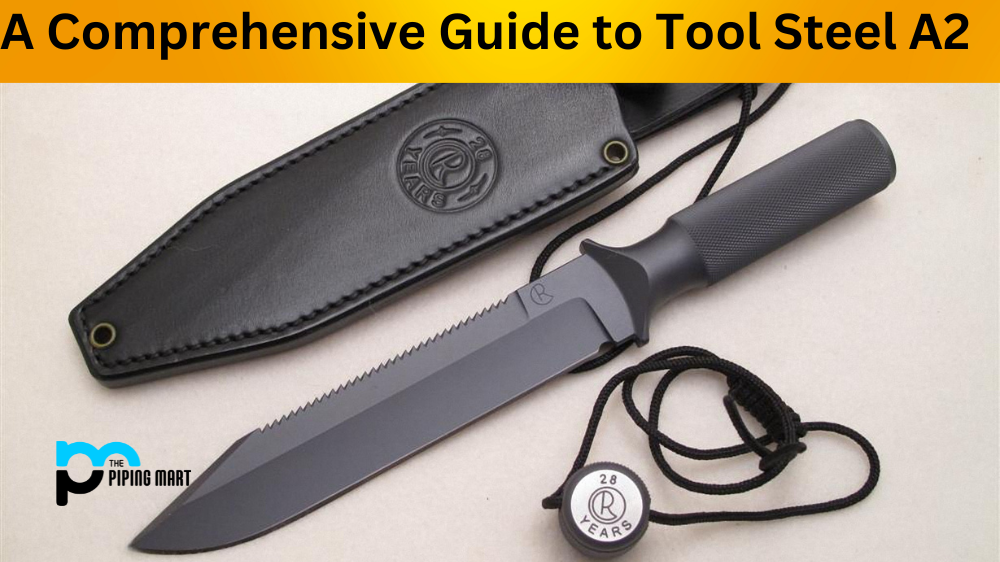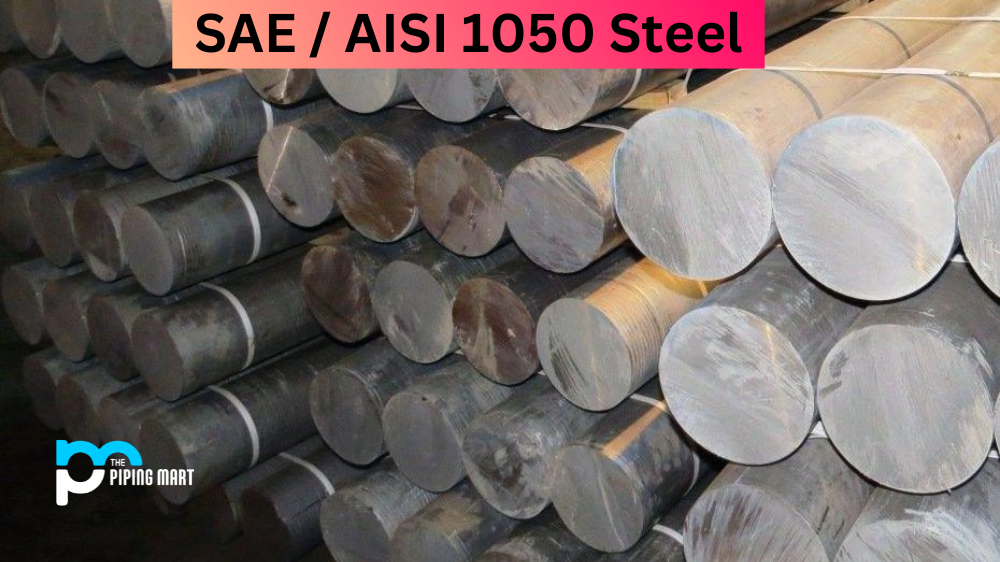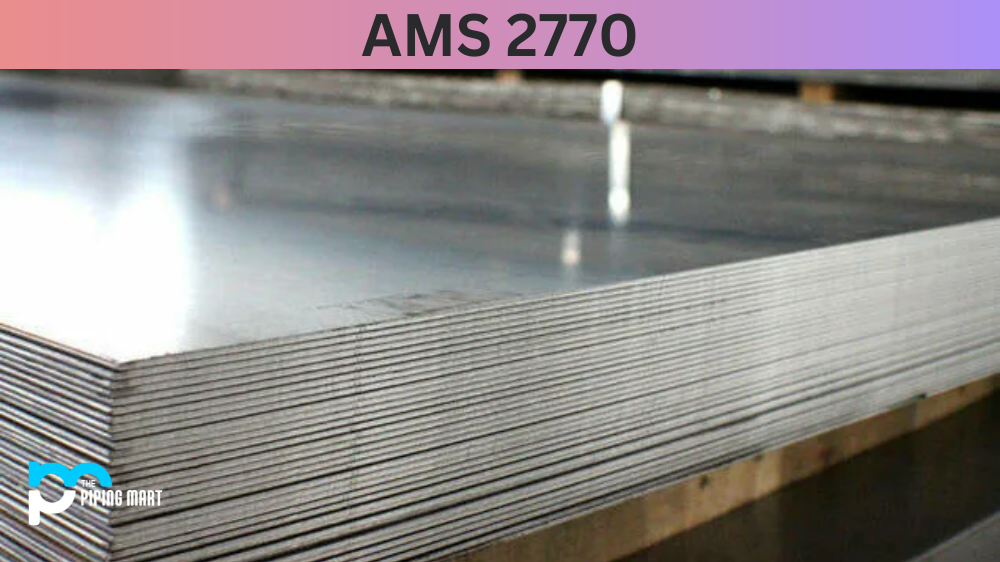A2 tool steel, recognized as UNS T30102, proves versatile in diverse applications. Renowned for excellent wear, corrosion, and heat resistance, it’s a preferred choice across various industries. Widely embraced in manufacturing and tool-making, A2 steel, with its formidable wear resistance, toughness, and strength, earns favor among engineers. Its chromium, molybdenum, and vanadium composition contributes to remarkable properties, enabling it to withstand impacts and high stresses, making it ideal for cutting tools and dies. With easy machinability, heat-treatability, and shape retention at high temperatures, A2 tool steel is a reliable option for crafting molds, dies, and various tools, ensuring outstanding results.
What Forms of AISI 1526 is Available at Piping Mart?
- Nut
- Bar
- Bolt
- Pipe
- Screw
- Tubing
- Valves
- Washers
- Flanges
- Fasteners
- Electrodes
- Stud Bolts
- Sheet Plates
- Pipe Fittings
- Forged Fitting
- Instrumentation Fittings
A2 Tool Steel Composition
A2 Tool Steel is an air-hardening alloy with a composition featuring 0.95-1.05% carbon, 4.75-5.50% chromium, 1.0% molybdenum, 0.9% vanadium, and other elements. This combination results in excellent wear resistance, toughness, and strength. A2 is widely used in toolmaking because it can withstand heavy impacts and high stresses and maintain shape at elevated temperatures.
| Element | Content (%) |
|---|---|
| C | 0.95-1.05 |
| Mn | 1 |
| Si | 0.5 |
| Cr | 4.75-5.50 |
| Ni | 0.3 |
| Mo | 0.90-1.40 |
| V | 0.15-0.50 |
| Cu | 0.25 |
| P | 0.03 |
| S | 0.03 |
A2 Tool Steel Physical Properties
A2 Tool Steel exhibits a density of about 7.86 grams per cubic centimeter (g/cm³) and a melting point at 1424°C. These specific physical characteristics make A2 well-suited for applications demanding a harmonious blend of hardness, toughness, and the capacity to endure elevated temperatures.
| Properties | Metric | Imperial |
|---|---|---|
| Density | 7.86 g/cm3 | 0.284 lb/in3 |
| Melting point | 1424°C | 2595°F |
A2 Tool Steel Mechanical Properties
A2 Tool Steel boasts a Rockwell C hardness of around 64, a bulk modulus of approximately 140 GPa, and favorable machinability. Its shear modulus is about 78.0 GPa, Poisson’s ratio is around 0.27, and its elastic modulus is approximately 190-210GPa. These mechanical properties make A2 suitable for various applications requiring a combination of hardness, machinability, and resilience.
| Properties | Metric | Imperial |
|---|---|---|
| Hardness, Rockwell C (as air-hardened (63-65 HRC average), 60-62 HRC at 205°C, 59-61 HRC at 260°C, 58-60 HRC at 315°C, 57-59 HRC at 370°C and 425°C and 480°C, 56-58 HRC at 540°C, 50-52 HRC at 595°C, 42-44 HRC at 650°C) | 64 | 64 |
| Bulk modulus (typical for steels) | 140 GPa | 20300 ksi |
| Machinability (based on carbon tool steel) | 65% | 65% |
| Shear modulus | 78.0 GPa | 11300 ksi |
| Poisson’s ratio | 0.27-0.30 | 0.27-0.30 |
| Elastic modulus | 190-210 GPa | 27557-30457 ksi |
A2 Steel Yield Strength:
A2 steel exhibits a yield strength ranging between 275 to 325 megapascals (MPa), denoting its resistance to deformation under stress. This characteristic is crucial in applications demanding a blend of strength and resilience. A2’s yield strength highlights its ability to endure substantial loads before undergoing permanent deformation. This makes it a favored choice in scenarios where a balance of robustness and toughness is essential, ensuring reliable performance across various industrial applications.
A2 Tool Steel Thermal Properties
| Properties | Conditions | ||
|---|---|---|---|
| T (°C) | Treatment | ||
| Thermal expansion | 10.7 x 10-6/ºC | 20-100 | – |
A2 Tool Steel Equivalent
- AFNOR Z 100 CDV 5
- DIN 1.2363
- JIS SKD 12
- SS 2260
- B.S. BA 2
- ASTM A681
- FED QQ-T-570
- SAE J438
- SAE J437
- UNS T30102
A2 Tool Steel Uses
Tool steel A2 is commonly used for cutting tools such as saw blades, drill bits, and end mills. It is also often used for dies, punches, and shear blades due to its superior shock and impact resistance. Additionally, UNS T30102 has been found to be useful in die-casting operations where it can withstand high pressures and temperatures without deformation.
A2 Tool Steel Uses in Industries
- Automotive Industry
- Tool and Die Making
- Aerospace Industry
- Manufacturing Industry
- Medical Industry
A2 Tool Steel Corrosion Resistance
A2 Tool Steel exhibits moderate corrosion resistance. While it’s not entirely stainless, its composition with chromium contributes to resistance against corrosion. However, for applications demanding high corrosion resistance, additional precautions or alternative materials may be considered to ensure optimal performance in corrosive environments.
A2 Tool Steel Heat Resistance
Tool Steel A2 showcases remarkable heat-resistant properties, retaining strength and toughness even at temperatures up to 600°C (1110°F). This feature renders it ideal for applications in high-temperature environments like furnaces or kilns, where other materials may succumb to damage or deformation. A2 further excels with excellent thermal shock resistance, ensuring resilience against sudden temperature changes. Undoubtedly, it stands out as one of the most durable alloys in contemporary use.
A2 Tool Steel Machining Capabilities
Examining tool steel A2’s performance in conventional machining methods like drilling or milling reveals an average machinability rating. While it can be cut relatively easily, its hardness level (HRC 60) may demand more time than softer alloys. Nonetheless, seasoned machinists, armed with appropriate tools and techniques, can navigate this challenge efficiently, mitigating any issues associated with working with the robust material, tool steel A2.
Conclusion:
The widespread preference for tool steel A2 among engineers and manufacturers is justified by its outstanding wear, corrosion, and heat resistance. Its versatility spans industries from aerospace to automotive engineering. With commendable machining capabilities, it enables the swift creation of intricate parts without compromising accuracy. Compared to softer metals like aluminum or brass alloys, A2 eliminates labor-intensive processes, making it a reliable choice for diverse applications where durability is paramount.
Meet Heer, a dynamic and driven writer learning tricks of her trade in the metal industry. With a background in Digital Marketing, Heer brings a unique perspective to her writing, sharing valuable insights. Apart from blogging she like reading and hiking.




